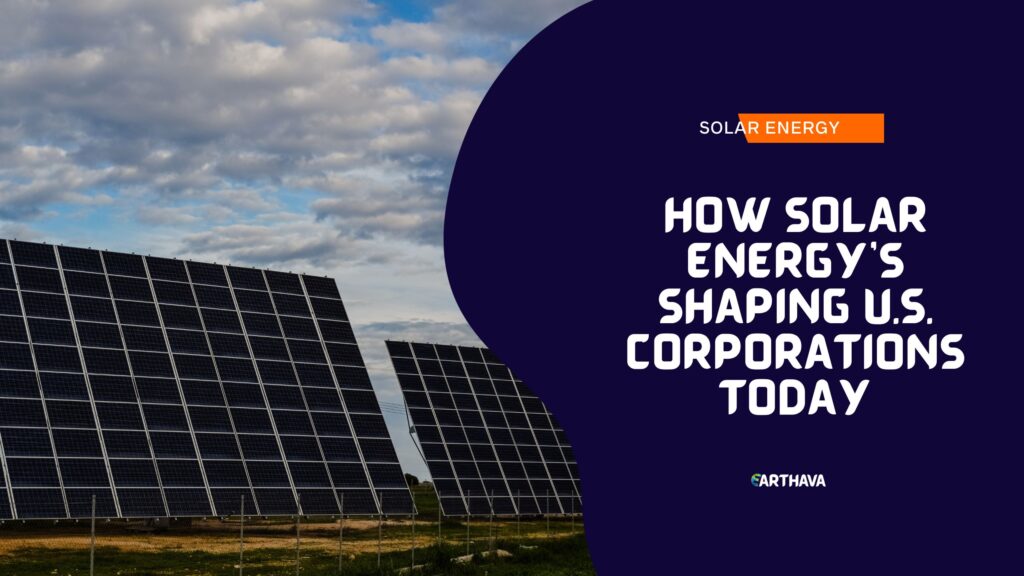Undoubtedly, the growth of solar power across the U.S. is changing the way corporations think about energy as a cost of operation. In just the last decade, solar energy has grown from a curiosity to a major source of power for businesses and residences. Corporations have only to look at the numbers to determine the difference between fossil fuel energy costs and solar energy costs.

Solar Energy is Impacting on Corporations Across the Country
All corporations base their annual budgets on some form of cost-cutting measures. The advantage of solar energy is the savings that keep bottom lines healthy. For example, the Solar Energy Industries Association (SEIA) reported that in 2014, “Walmart, Kohl’s, Costco, Apple, IKEA and more have all embraced solar energy.”
Corporations, Jobs, New Business, and Solar Energy
Another big advantage of solar energy for corporations is the jobs this industry creates. The SEIA also reported that “Collectively, the companies with the most solar capacity in the U.S. now have 1,110 systems totaling 569 megawatts (MW), generating enough electricity to power more than 115,000 homes. And these companies are installing even more.”
Related: Solar Energy Creates Jobs and Impacts Economies
In terms of new business, solar energy has impacted corporations by increasing the number of new businesses that can also function as B2B inter-related corporate suppliers and vendors.
Corporations also benefit when this newly created business opens a wider sector of jobs for civil, mechanical, and design engineers, construction managers, electricians, and manufacturing managers. For example, a job seeker with a Master’s in Civil Engineering will find an opportunity to enhance their education in the Solar Energy Industry.
A candidate with a Master’s in Civil Engineering will find jobs within the Solar Energy Industry by locating and engineering new solar farms, plants, and megawatt complexes. Thirty percent of all energy in the U.S. today comes from solar power from solar farms that produce solar energy for electricity to residential solar which since 2013 has grown over 70 percent by 2015, according to an article in the Sept. 2015 issue of Fortune Magazine.
Conclusion
While solar energy has proven to be less expensive than fossil fuel energy, large corporations hungry to save on energy costs are considering the benefits of converting to solar energy.
These benefits include:
• . Reduction in operating costs
• . Locked-in energy costs for the foreseeable future
• . Reduction in carbon footprint
Overall, for corporate executives responsible for maintaining healthy business budgets, solar energy’s impact is clean energy and cost savings.


